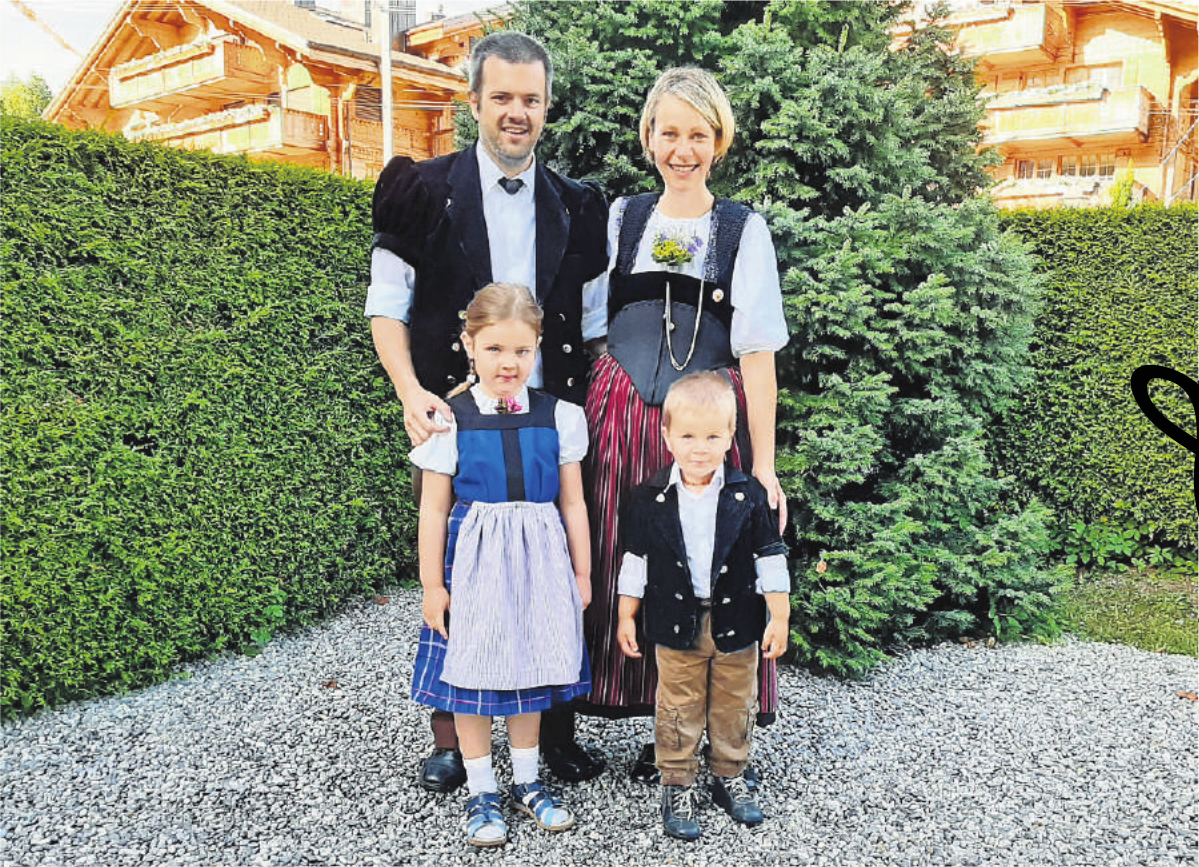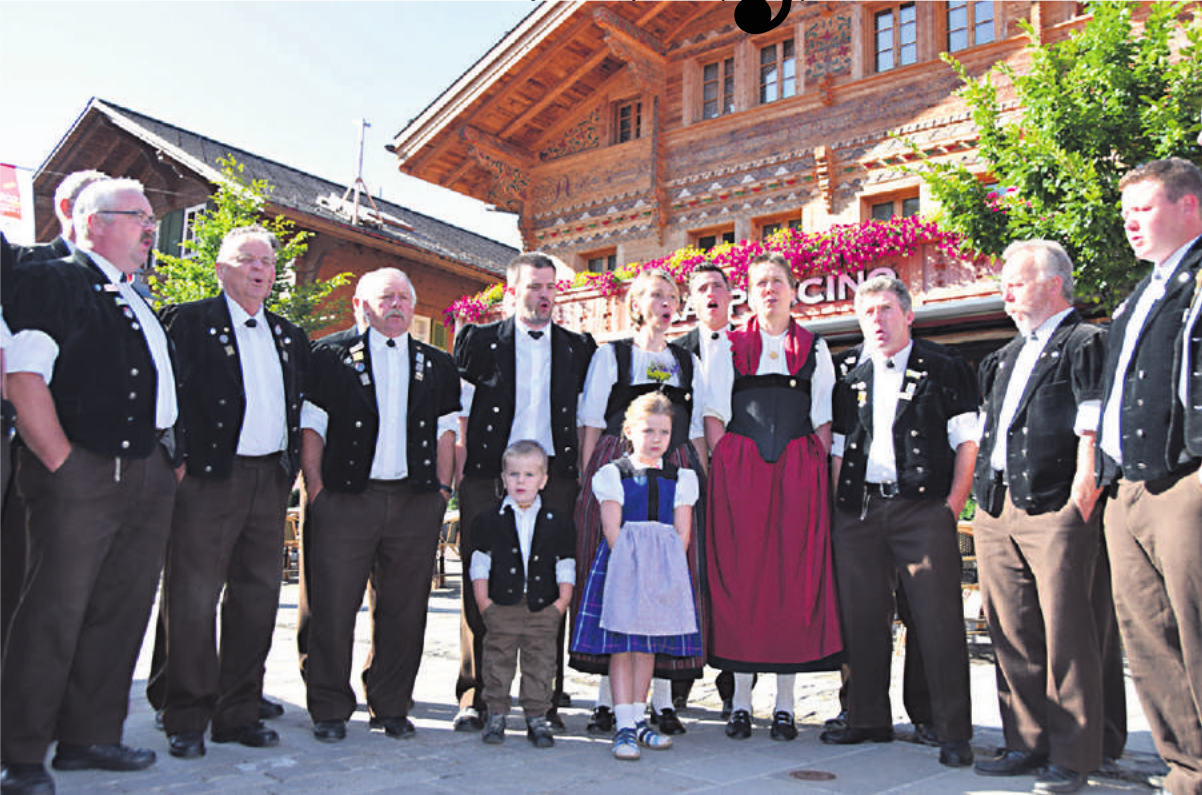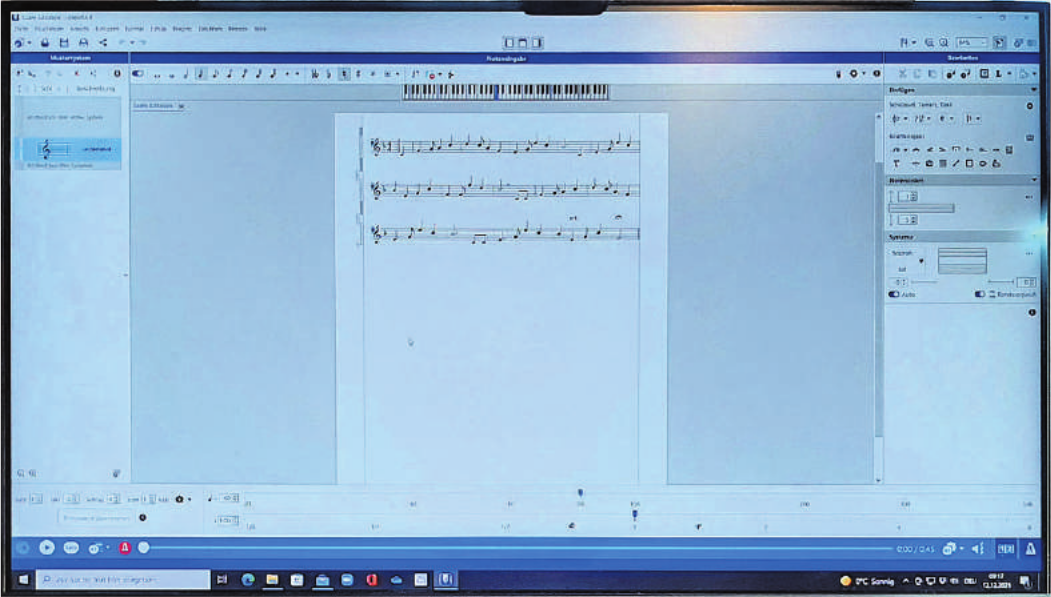Yodelling inspiration
13.01.2022 TraditionsSimon Hefti from Turbach is a multi-talented musician who composes, conducts and teaches yodelling courses throughout the Saanenland and beyond. GstaadLife met with Simon to talk music, tradition and inspiration.
Do you come from a musical family?
Yes, for sure. I would say that yodelling is very firmly anchored in our family. My forefathers were all actively involved in the Saanen yodelling community and my mother also comes from a yodelling family. My wife sings in two different yodelling choirs and our two young children are also getting involved. They both participate in a children’s yodelling choir and so far thoroughly enjoy the experience.
What attracted you to yodelling?
Yodelling is more to me than just a form of music. It’s an attitude, an outlook, a tradition that runs deep. Yodelling has always been a part of my life and gives me the feeling of Heimat, of being home.
How did you first get involved?
I’ve always loved singing. From about the age of eight or nine my journey to school involved a thirty-minute walk along a glorious route and I would sing every day. Over time I started to experiment with different sounds and noticed how much fun this was.
I composed my first official yodelling song when I was around 17 or 18 and I still remember it to this day. I asked a group of friends to try it out and sing with me. It was an incredibly special moment – to see just what can come from an idea. I was the oldest in our group and as we started to sing together more, it was natural that I took the role of conductor. It’s something I adore doing – there’s something so artistic about being able to create a sound, a feeling and an experience simply from what’s written on a sheet of music. I was immediately fascinated by conducting and wanted to explore this direction further.
These days I am also a member of a Swiss-wide yodelling association, attend yodelling festivals across the country and also sit on the juries of federal and cantonal yodelling events. I also dedicate evenings and weekends to teaching adult yodelling courses.
Where do you get your inspiration from?
To me this has everything to do with finding and expressing inner joy. Although I cannot sit in a room and wait for something to come to me, I find nature and the Saanenland landscape a source of constant inspiration. In a kind of throwback to my school days, I hear melodies when I go hiking in the region. It happens when I’m not thinking about anything in particular, but simply enjoying the view after a steep climb or looking at an especially beautiful flower. That’s how it works for me: new ideas develop when I’m outside at one with the natural world.
Please take me through the process of creating a new composition.
First I lay down a form of base layer. I’ll go for a walk and hear the beginnings of a melody develop in my head. But a tune on its own is not enough – I need a theme to work from. I listen to the melody and imagine what it’s saying to me, explore what story I want to communicate. From that point I start to put my ideas down on paper and the hard work begins. The amount of time required to complete a composition varies enormously. I once completed a song for three voices in just over one evening, while other compositions have taken more than ten years to complete. Sometimes I need to step away from a song for a year or perhaps even five years, to explore different variations and to wait until all the pieces click together. Above all else I’ve learned this is a process that cannot be rushed or forced. It is crucial that I am clear on what theme and story I want to communicate through my music.
Yodelling is a very traditional form of music. How do you balance tradition with innovation in your work?
I have always been of the opinion that yodelling, when done thoughtfully and with care, can and must develop. I like the fact that with a nod to the past we can also try different things, introduce new elements. This has always been the case of course – even though we look back at the past and call this ‘tradition’, yodelling was always evolving over the years. This is quite normal and has happened throughout history.
Who performs your compositions?
Although I still sing with the same group of friends (four men and one woman) from my teenage years (Horeflue Jutzer, Saanenland), I now work with other groups too. I am the conductor for a yodelling club (Jodlerklub Gruss vom Wasserngrat, Gstaad) that has a large choir consisting of two women and roughly 18 to 19 men as well as a mixed choir that is split fifty-fifty between women and men (Jodlerchörli Abeglanz, Gstaad). I find it so exciting to be involved with such a range of singing groups and hope this can continue for a long time to come.
While we perform my own compositions, we also sing those from other composers. Everyone has their own style and their own vocal range, so we pick songs from different composers that best suit the voices and members in each choir.
How does it feel to conduct someone else’s composition?
When I first start work with someone else’s composition I know nothing about the melody. Then slowly you start to bring it to life. Every composition has its unique traits and when the song starts to come together, when you start to hear how it will eventually sound, well that’s a very special moment. Sometimes you experience something indescribable, when something magical happens to the choir – something that is not programmable. It opens up energy sources, generates special feelings of happiness and you become one – as a choir, as a group and as a person. I often get goosebumps at these moments.
What does music mean to you?
Music is incredibly special to me. It’s quite simply what rounds out life. We spend so much of our time working, earning money, looking after the family and dealing with practical matters. Music offers something different to life. In music you will find energy, happiness, consolation and countless other emotions. Music brings people together. I love it when music triggers emotions in the audience, when I see them sometimes with tears in their eyes. I find this so wonderful and so refreshing, and am especially grateful for the positive role music has played during the pandemic.
How did Covid-19 impact yodelling?
As with many activities, it’s been a difficult couple of years for the yodelling community because of Covid-19. During the first lockdown we were forbidden to sing together and I understand why: we’re groups of people standing very close together singing without the protection of masks. I know that some yodelling choirs decided to use technologies like Zoom to continue singing together, but my yodelling groups were sceptical about the merits of this approach. Timing is such an important element in yodelling and I find it so important to be able to feel the rest of the choir through the music that in the end we decided to not go down the remote yodelling path.
For now we’re allowed to perform together and long may this be the case, but with rising Covid-19 cases we’re keeping a close eye on the latest federal guidance in case new restrictions are introduced.
Would you like to make music your full-time job one day?
That would be the dream, but as it’s not something I see as possible, I’m happy to continue with yodelling as a hobby. Albeit a very time-consuming hobby, but I love it so that’s no problem for me. As my wife and children are also involved with yodelling, it’s a shared family interest so I’m not on my own.
How do you see the future of yodelling?
Although I think it’s certain that yodelling will change over time, there is a big interest and appreciation by people in Switzerland to go back to their roots. I think this is one of the reasons why yodelling in Switzerland is so tightly entwined with the national identity and think it will continue to go from strength to strength. As for the Saanenland, we have many yodelling groups and choirs packed with strong young talent, which makes our region well positioned to carry the tradition forward.
ANNA CHARLES






